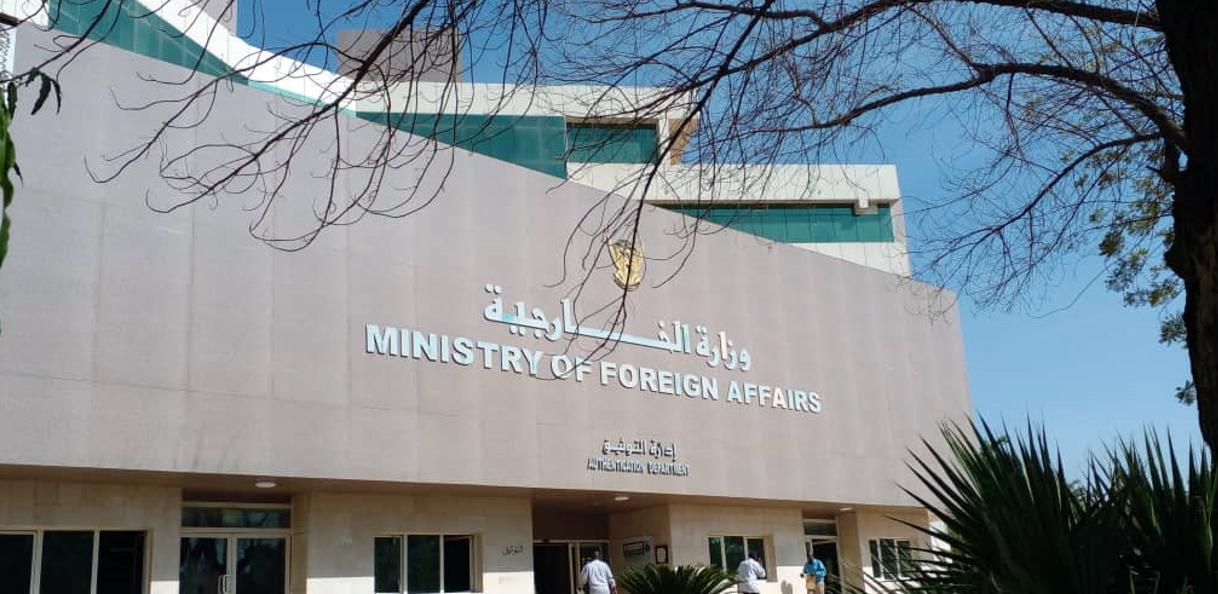
Will the Ministry of Foreign Affairs Become a Genuine Party in the Negotiations?
Abdullah Rizk Abu Seemazah
A week has passed since the political and diplomatic stalemate that overshadowed the efforts to stop the war, following the failure of the second emergency IGAD summit on Sudan, hosted by the Ugandan capital, Kampala, last Thursday. The summit aimed to bring the warring parties together to approve an immediate and unconditional ceasefire agreement and end hostilities. Meanwhile, fighting intensified around Babanusa in western Sudan, highlighting field developments alongside traditional conflict fronts. This occurred despite the African Unions initiative, which, in a proactive move to fill the initiative vacuum, established a high-level committee to address the crisis. However, as of now, no activity from that committee has surfaced.
In this context, the coordination of civil and democratic forces led by Dr. Abdullah Hamdok has so far failed to meet with General Abdel Fattah al-Burhan. Simultaneously, Egypt emerged this week in the field of peaceful initiatives to stop the war for the first time since the Conference of Sudans Neighbors held in Cairo earlier. Egypt announced the hosting of a meeting related to Darfur by a French organization, resembling a second revised edition of the Juba Conference.
However, the meeting, according to reports on social media, is expected to bring together the army, Rapid Support Forces, along with armed struggle movements. Perhaps, this meeting did not succeed due to the absence of the army and the apology of the Justice and Equality Movement led by Gibril Ibrahim. It was not expected, despite the announcements, that such a meeting would avoid discussing the issue of war and the path to its cessation if it took place in full.
In the context of activating peaceful initiatives to prevent the situation from deteriorating with the escalation of fighting, there were reports of efforts by Saudi Arabia, one of the facilitators of the Juba platform, to resume negotiations between the warring parties. It is worth noting that the previous rounds in the Juba platform made progress, which should be built upon in subsequent rounds, but without tangible responsiveness from the concerned parties. This includes the Sudanese Ministry of Foreign Affairs specifically, which stood behind thwarting all efforts to stop the war during the period from the first emergency IGAD summit in Djibouti, which ruled out adopting Burhans plan for a (political process that excludes no one), until the second emergency IGAD summit in Kampala at least.
The recent note raises the question of whether the Ministry of Foreign Affairs plans to become a genuine party in the negotiations, if it does not present itself as an alternative to Burhan. The Ministrys declaration during its officials meeting with the UN envoy committed the government to the platform of Jeddah, was in reality nothing more than cover for not attending the IGAD summit in Kampala, which was underway at the time, and thwarting the meeting between Burhan and Hemeti agreed upon in Djibouti.
Burhan had arranged to launch this initiative following his meeting in Nairobi with Kenyan President Uhuru Kenyatta, with the aim of disavowing the commitments approved by the Juba platform. This week, hints emerged again about the necessity of (involving) Islamists in the efforts to stop the war and settle the conflict. This comes as their bet on military decisiveness wanes due to given circumstances. The first is the acknowledgment, one way or another, and recognition of Islamists as a party in the war. The second is the conviction that they are an indispensable party, and peace cannot be bypassed or achieved without them, considering their tangible capabilities in hindering efforts to stop the war and undermining security and stability.

